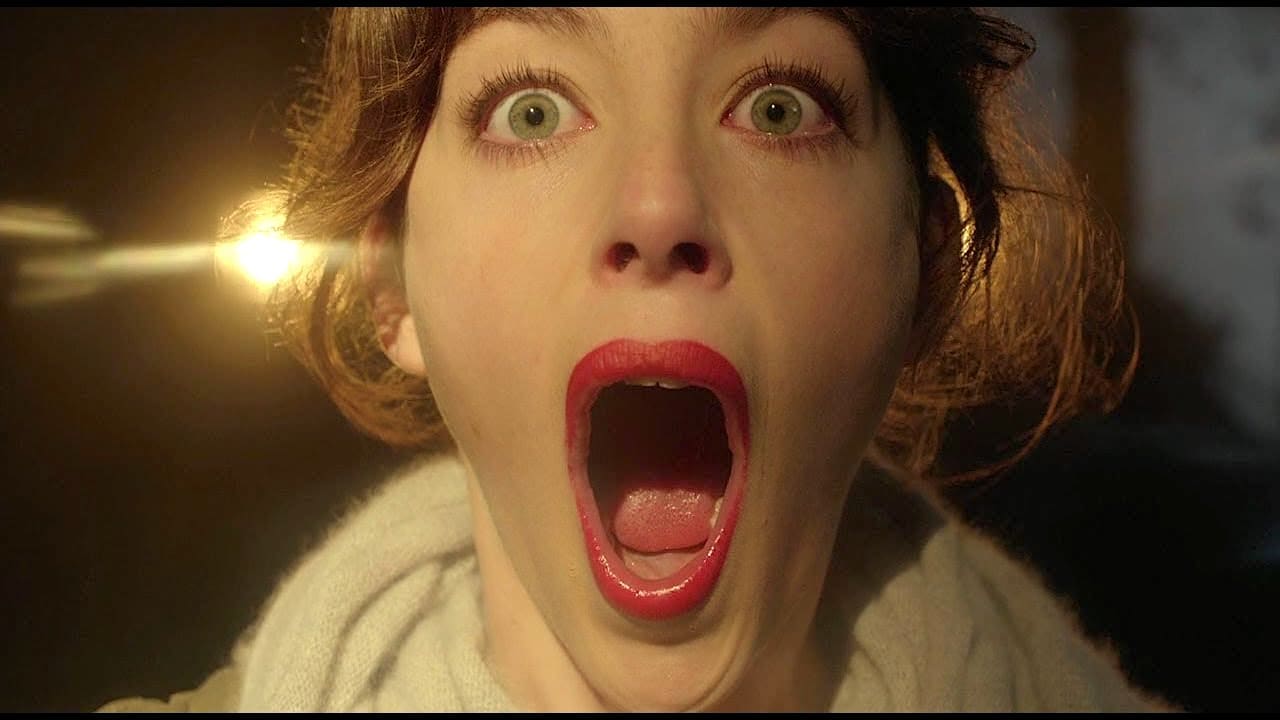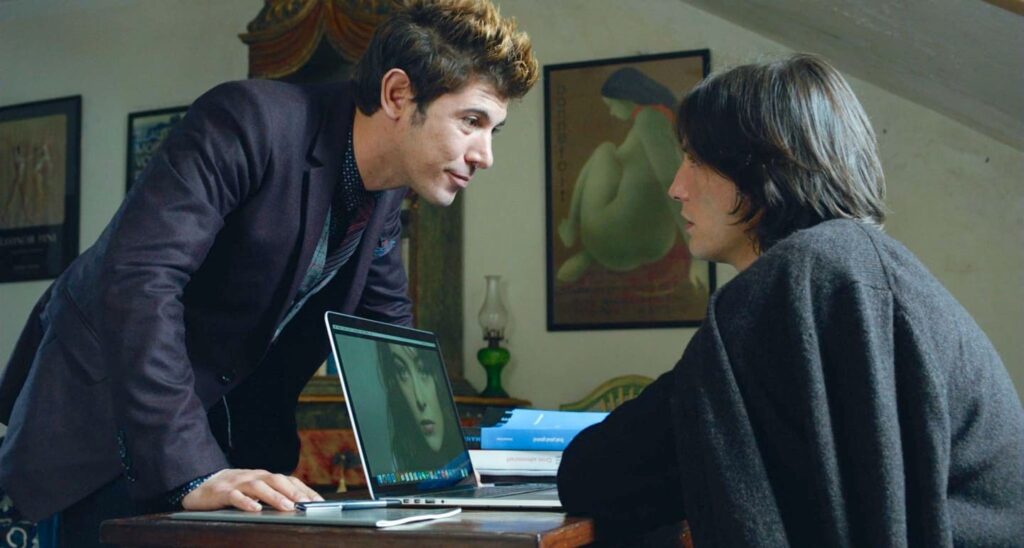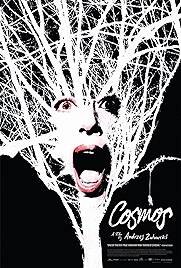The bare bones of ace provocateur Andrzej Zulawski’s final film, 2015’s Cosmos, are easy to lay out. A writer called Witold goes to Portugal to write a book. He is staying in a French-speaking private house, the sort of place where everyone eats dinner together in the evening. While there he strikes up a friendship with fellow holidaymaker Fuchs, a designer who’s just chucked in his job with a big French fashion house. Also there are Madame Woytis, who rules the roost, along with her second husband, Léon. Plus her daughter, Lena, and Lena’s new husband, Lucien, the pair of them so good-looking it hurts.
In the evenings, while Madame twitters and Léon expostulates on the matters of the day, Fuchs casts lusty sidelong glances at Lucien, while Witold finds his eyes drawn to Lena, who seems to be returning his calls.
From this description Cosmos is shaping up to be a classic French farce. And in a way it is. But Zulawski has something else in mind. He’s driving another vehicle on a parallel lane, one marked “old school avant-garde surrealist absurdism” and he switches lanes through the entire film, never indicating which lane he’s in. One second we’re in the “normal” farce world, the next in another one, where people are speaking in non-sequiturs, motivation is opaque and characters have no consistency.
This starts right after the opening shot when Witold, en route to the guest house, comes across a dead bird hanging on a piece of blue twine. Later he finds some blocks of wood also hanging on blue twine. The hangings don’t stop there.
At the guesthouse there is a maid with a malformed top lip. Later, the same actress will play another person, with no malformed top lip. Madame is given to sudden screaming bouts and often freezes catatonically mid-sentence. Léon’s rambles about the iniquities of the modern world start to be peppered with nonsense words. Witold has occasional spasms of mad gurning, as does Lena. In what passes for a plot in this other, out-there, lane, Witold and Fuchs get together to form a surrealist detective duo, trying to divine in Holmes and Watson style what’s really going on from the available clues – the hanged bird, the direction a discarded rake is pointing, the patterns formed by water stains on the ceiling.
It is all maddening, and that’s if you like this sort of thing. Irksome if you don’t. But Zulawski shoots it all bright and clear and in an absolutely conventional way, as if what’s going on here were the most natural thing in the world.
The cast are on the same page, giving forceful and direct performances that seem absolutely unambiguous. Sabine Azéma is used to this sort of thing, having appeared in several farces directed by her husband, Alain Resnais. Jean-François Balmer is assured as the gibbering Léon. Jonathan Genet gets a chance to open up as Witold, the self-consciously writerly writer with a romantic poet’s cheekbones and hair, plus eyes straight from a billboard for a high-end male scent. Johan Libéreau scampers about as Fuchs. Victoria Guerra is steely and coquettish, like an object of desire from a Buñuel movie. Andy Gillet is largely ignored as fall-guy Lucien. Clémentine Pons does what she can with the dual characters of the strange Catherette and the entirely not-strange Ginette.
“I make films about what is torturing me,” Zulawski once said. Draw your own conclusions but… Zulawski’s previous film came 15 years earlier and was called Fidelity. It starred Sophie Marceau as a woman being pursued by would-be lovers. Marceau was Zulawski’s partner at the time. The two of them split shortly after Fidelity debuted. Fifteen years later Zulawski shoots his next film, having spent the intervening time writing books. Cosmos is about a writer with a Polish name. And Victória Guerra has a passing resemblance to Sophie Marceau.
Yeh? Maybe not. But this strange film seems to be about a state of mind, of everyday reality, the intensely practical, being overwhelmed by an already sensitised unconscious provoked into crisis by exposure to a stimulus – Witold sees Lena and he loses it. Objective truth meets subjective truth and comes off second best. Mad romanticism takes over.
Forget realism. It won’t get you very far. Zulawski says as much in images over the end credits, shots of cranes and lights, gels and cameras, the paraphernalia of film-making. Here’s the practical end of film-making, these images say, but they have little to do with the finished product, which in film is fantasy, always.
Zulawski died the following year, aged 75. This is an intense and also intensely irritating film, not up there with 1981’s weird horror film Possession, or 1988’s weird sci-fi film On the Silver Globe. But it’s great a unique film-maker going out with all guns blazing, trying something different, remarkable to the end. This film is probably worth a second look.
Cosmos – Watch it/buy it at Amazon
I am an Amazon affiliate
© Steve Morrissey 2023


